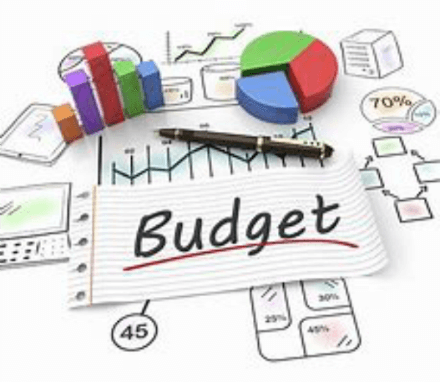Advantages And Disadvantages of BudgetingA budget is a numerical and systematic plan for a certain period, such as a month or a year, typically but not necessarily tied to finances. This is a list of anticipated costs and the resources available to fulfill them. The budget also verifies the organization's financial stability based on the state of the national economy. Either the complete financial statement or only a certain portion of it can have a budget prepared for it. Budgeting is the process of estimating revenues, expenses, cash flows, production lines, working capital needs, capital expenditures, etc., for the next few years. This information is then presented to the company's management for decision-making based on logical prospect reasoning. The organization's future goods, services, markets, and all other aspects of its growth are outlined in the budget. Budgeting helps in the identification of potential resources, and it is helpful in the proper utilization of them. Consequently, the process of creating a budget is crucial. When the budget plans are complete, they are submitted to the organization's budgeting committee for approval. 
Budgeting MethodsEach budget is created based on the organization's existing financial situation. Following are some of the classified methods: 1. Base Budgets This is a fundamental budget that the company has created. This outlines the fundamental income & expenditures that will ensure the organization's survival in the short term. Only the costs that are necessary to keep the organization on track are listed in this budget. This budget may also be referred to as a "going concern" budget. 2. Activity-Based Budgets This budget focuses on cost-cutting. The costs associated with each of the organization's activities are what is highlighted. Such budgets are often created by companies that have been in operation for more than five years, intending to reduce spending on a select few operations. 3. Zero-Based Budgets This type of budgeting aids an organization's development of creative techniques for carrying out certain organizational tasks. Without considering previous experiences, a new budget is created. However, that does not imply that ad hoc figure. Zero-based budgeting does not imply arbitrary or hazy numbers. Your thoughts must have a foundation. 4. Traditional Budget "Having a basis from prior experiences" is what tradition signifies. The typical budget begins with a fundamental sum. Economic prospects, including growth, industry risk, and trend, are considered to create budgets. Incremental budgets are another name for traditional budgets. 5. Kaizen Budget The Japanese term "kaizen" means "change for the better." Additionally, it refers to ongoing development throughout all organizational levels. The primary goal is ongoing quality, sales, and cost improvements. Japanese businesses never skimp on the quality of their goods. Thanks to this budgeting process, the firm may aim for cost-cutting while obtaining the highest quality. Typically, this budget is created for a longer period than previous budgets. 
Advantages of Budgeting1. Developmental Orientation Developing a budget compels management to shift its focus from short-term, ongoing management of the company to longer-term planning. This is the main objective of budgeting; even if management is unsuccessful in achieving its objectives as specified in the budget, at least it is considering how to enhance the company's competitive and financial position. 2. Analysis of Bottlenecks Every organization has a bottleneck someplace. The budgeting process may be utilized to focus on what can be done to either increase the capacity of that bottleneck or move work around it. It also aids management in reviving or revamping the company before it's too late. 3. Planning For Funds The quantity of money that will be spun off or required to fund operations should be derived from a properly established budget. The treasurer uses this data to forecast the financing requirements for the business. The treasurer can determine whether to invest extra funds in short-term or long-term investment instruments using this information for investment planning. The budgets' justifications or underlying presumptions can also be understood by management. The fundamental presumptions that underlie the budgeted statistics can then be improved. 4. Review of Profitability This is one of the most advantageous features of budgeting during the flurry of daily management. It is simple to lose track of where a firm makes its revenue. A correctly constructed budget identifies which portions of the company generate revenue and which ones consume it, forcing management to decide whether to scale down or expand in some areas. Management can also take remedial measures for the departments that are not assisting the organization's overall objective. 5. Sound Financial Management Budgets can serve as a motivating tool to help you manage your money. Budgeting may help you reach your financial objectives, which can spur you on to do more budgeting and gain financial control. The budgets' justifications or underlying presumptions can be understood by management in businesses. The fundamental presumptions that underlie the budgeted statistics can then be improved. 
Disadvantages of Budgeting1. Delayed Results Budgeting requires time and work, as you are aware, and for some individuals, the rewards don't show up quickly enough. The issue with this is that some people may lose interest in adhering to a budget. Since most individuals concentrate on the long-term objective, it might be challenging to keep to the budget since they are process-oriented. Remember that you will ultimately achieve your goals if you stick to your budget since it is effective. 2. Inaccuracy This could be the main reason why most individuals stop using budgets. Budgeting is erroneous sometimes, or even always, if you are not very practical. When creating a budget, you must remember that you are predicting and estimating how much you will spend based on your current information. Rent is ₹8000, but if the spread rises, rent will be more. Or if you regularly fill your car up with ₹2000 worth of petrol each month, but if fuel prices rise, you'll have to pump in more, costing you more money than you anticipated. Since you may never be certain of your revenue for a given month, budgeting can be particularly difficult for freelancers. 3. Stressful Process It might be hard to start a new habit since you have to employ willpower to resist these urges. For instance, when it comes to budgeting, you must use willpower to stick to the decisions you made at the beginning of the month and avoid making unnecessary purchases. Developing a new habit does not ensure that you can keep it up, just like with anything else. Since you are battling with yourself not spending money on things that are not in the plan, budgeting may be quite challenging. Since it might be difficult to keep track of all expenditures, developing these habits takes time. Your responsibilities will ultimately come effortlessly to you, but not immediately. If you share a home with your husband, parents, or other family members, getting everyone on board with a financial plan may be challenging. Changes are challenging, especially when money is involved. 4. Budgeting is Rigid, And Mechanical Many people think creating a budget is a mechanical, inflexible process limiting your flexibility. You must follow a rigorous budget that limits where and how much money you may spend while you go about your daily life. For example, what if you wanted to visit your favorite restaurant, but your budget indicated that you had already used all your monthly allowance for dining out that month? This is very rigid. 5. Budgeting Results Take Time to Appear Budgeting requires time and work, as you are aware, and for some individuals, the rewards don't show up quickly enough. The issue with this is that some people may lose interest in adhering to a budget. Since most individuals concentrate on the long-term objective, it might be challenging to keep to the budget since they are process-oriented. Remember that you will ultimately achieve your goals if you stick to your budget since it is effective. 6. Excessive Work and Time Budgeting will almost certainly go wrong since you will neglect certain costs. When creating a budget for the first time, some people are not practical. You must realize that this will need time and effort. |
 For Videos Join Our Youtube Channel: Join Now
For Videos Join Our Youtube Channel: Join Now
Feedback
- Send your Feedback to [email protected]
Help Others, Please Share










